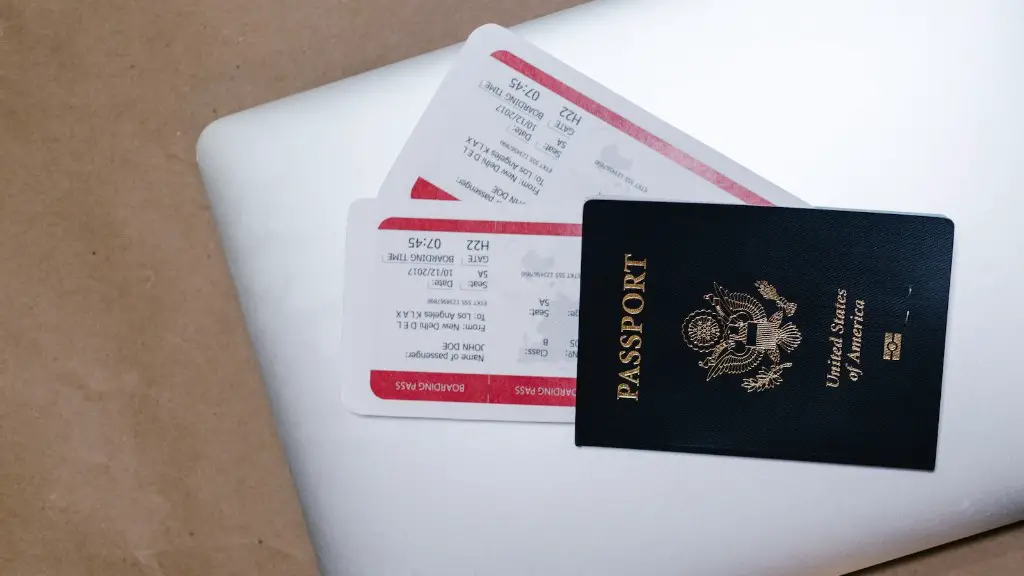Every year, thousands of people travel abroad for business or pleasure. While most trips are uneventful, accidents and illnesses can happen. That’s where travel insurance comes in.
Travel insurance is a type of insurance that covers medical expenses, trip cancellation, lost or stolen luggage, and other unexpected expenses that may occur while traveling.
Some travel insurance policies also cover adventure activities like skiing and white-water rafting.
The cost of travel insurance varies depending on the length of your trip, the destinations you’re visiting, and the type of coverage you need. But on average, a basic travel insurance policy costs about $30-$50 per person, per trip.
The average cost of travel insurance is $30-$50 per person, per trip.
Which insurance is best for travel insurance?
There are many travel insurance companies out there, and it can be difficult to know which one is the best for you. We’ve compared some of the top travel insurance companies to help you make a decision.
Travelex is our top pick for the best overall travel insurance company. They offer great coverage at a reasonable price, and their policies are easy to understand. Allianz is our runner-up for the best overall travel insurance company. They offer a wide variety of policies with different coverage levels, so you can find one that fits your needs.
InsureMyTrip is our pick for the best value travel insurance company. They offer a variety of policies at different price points, so you can find one that fits your budget. World Nomads is our pick for the most comprehensive travel insurance company. They offer a variety of policies with different coverage levels, so you can find one that fits your needs.
A comprehensive policy is a travel insurance policy that covers delays, cancellations, lost luggage, and emergency medical costs. This type of policy is usually more expensive than a basic policy, but it provides more coverage for the traveler.
Is travel health insurance expensive
Travel medical insurance is a great way to protect yourself and your family while traveling. It is typically very affordable, with policies averaging between $40 and $80. Keep in mind that higher coverage limits and longer coverage terms typically increase the cost of the policy.
Though you may pay 5 to 10 percent of your trip cost for travel insurance, travel insurance is often worth the investment for its potential to help reimburse you for hundreds of thousands of dollars of covered travel-related expenses like emergency evacuation, medical bills, and costs related to trip cancellation and .
What is a reasonable amount to pay for travel insurance?
Assuming you are talking about daily travel insurance rates, the cost varies depending on a few factors. Your age is one factor, with younger travelers typically paying less than older travelers. Your travel destination is another factor, with rates typically being higher for more dangerous or remote locations. The cover level is also a factor, with more comprehensive coverage typically costing more. Finally, if you have any pre-existing health conditions, that can also affect the rate.
It’s always a good idea to have travel insurance when going on a trip, especially if you’re booking in advance. This way, if you need to cancel your trip for any reason covered by your policy, you’ll be covered. Single trip cover is usually cheaper than an annual policy, so it’s worth taking out as soon as you book your break.
What travel insurance will not cover?
Most travel insurance policies have a clause that excludes coverage for accidents or loss of property if the policyholder is under the influence of drugs or alcohol. This is because being under the influence increases the likelihood of risky behavior, which in turn increases the chances of an accident or loss. If you plan on drinking while on your trip, be sure to purchase travel insurance that includes this exclusion.
There are a few things to keep in mind when looking for travel insurance with pre-existing conditions. Most policies will exclude coverage for pre-existing conditions, so it’s important to check with your insurer before you purchase a policy. Some insurers will cover you if you pay an additional premium, but it’s important to read the fine print to make sure you understand what is and is not covered. Common exclusions for pre-existing conditions include bone and joint conditions.
What are three types of travel insurance
There are three types of travel insurance coverage: medical insurance, cancellation/interruption insurance, and luggage insurance. Each type of insurance coverage has different benefits and features. For example, medical insurance provides coverage for medical expenses incurred while traveling, while cancellation/interruption insurance provides coverage for non-refundable travel expenses if your trip is cancelled or interrupted. Luggage insurance provides coverage for lost, damaged, or stolen luggage.
As you age, it’s not surprising that snowbird travel medical insurance premiums increase. However, most insurance providers offer the same pricing as long as you’re within a certain “age range.” Common age ranges are from 61 to 65, 66 to 70, 71 to 75, 76 to 80 and 81 to 85.
What is the difference between travel insurance and travel health insurance?
There are a few key differences between travel insurance and international health insurance. Travel insurance is designed for holidaymakers to cover cancellations, personal belongings and emergency medical treatment, whereas international health insurance is designed to cover inpatient treatment check-ups and continuing treatment of chronic conditions abroad.
International health insurance typically provides a wider range of coverage than travel insurance, including cover for maternity, mental health and routine check-ups. Travel insurance generally has a lower premium than international health insurance, but this will vary depending on the insurer and the type of coverage you choose.
When deciding which type of insurance to purchase, it is important to consider your needs and what type of coverage you are looking for. If you are planning to travel overseas regularly, or if you have a chronic medical condition that requires treatment, international health insurance may be the best option for you. However, if you are only planning to travel occasionally and are not concerned about continuing treatment for a chronic condition, travel insurance may be sufficient.
This is something to keep in mind as you age and begin to look into travel insurance. The rates will likely be higher than they were in the past, but it is still important to have coverage in case of an emergency. Shop around and compare rates to find the best policy for your needs.
Does trip insurance cover if I cancel my flight
If you have to cancel your trip for a reason that’s covered by your travel insurance policy, you may be reimbursed for your nonrefundable, prepaid expenses. Coverage varies by policy, so be sure to read your policy carefully. Some common reasons for trip cancellation that may be covered by your travel insurance include:
• Illness or injury
• Death in the family
• Weather
• Terrorism
• Natural disasters
If your flight is taking off and/or landing at a US airport and is delayed or canceled, you’re covered by the rules put in place by the US Department of Transportation (DOT). The DOT requires airlines to provide food, water, and restrooms, as well as make accommodations for delayed passengers, such as hotel rooms if necessary. Travel insurance can reimburse you for expenses incurred as a result of a delayed flight, such as a hotel room or meals.
When looking for travel insurance, it is important to consider the country you are travelling to. Some policies only cover certain countries, so you will need to make sure that your policy includes the country you are visiting. You should also consider how many trips you plan to make in a year. Annual cover tends to be the best value if you are travelling more than twice in a year. However, if you are only planning to head away once or twice, single trip cover may make more financial sense.
Can I get a full refund with travel insurance?
Trip cancellation insurance is a great way to protect yourself from financial loss if you have to cancel your trip for a covered reason. Most policies will cover you for up to 100% of your nonrefundable trip costs, so it’s worth considering if you have any nonrefundable expenses.
There’s no need to wait to buy travel insurance. You can buy it as soon as you start planning your trip, and the price will be the same. The only exception is if you want additional coverages that are only available if you purchase the policy closer to your travel date.
Final Words
There is no definitive answer to this question as the cost of travel insurance will vary depending on a number of factors, such as the destination, the length of the trip, the activities that will be undertaken, and the level of cover required. However, as a general guide, the average cost of travel insurance for a one-week trip to Europe would be around $30.
From the research I have conducted, the average cost of travel insurance is $500. This is only a rough estimate and the actual cost may vary depending on the individual’s plans and needs. Nevertheless, $500 is a significant amount of money that most people would have to think carefully about before spending.





